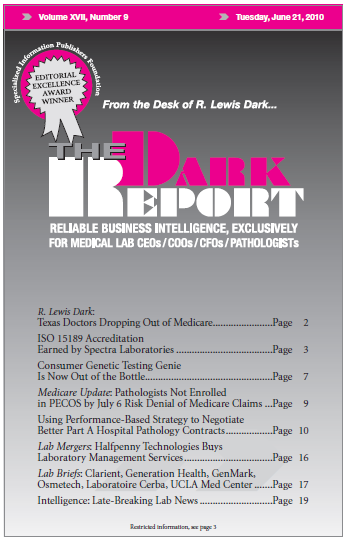Early in June, exactly 96 customers of 23andMe, Inc., were notified that they had received the wrong genetic test results. It was particularly bad timing, since the company had just been sent a letter from the FDA asserting its authority to regulate genetic testing. Bloggers reported that, on its web site and accessible only to …
June 21, 2010 “Intelligence: Late Breaking Lab News” Read More »
To access this post, you must purchase The Dark Report.


